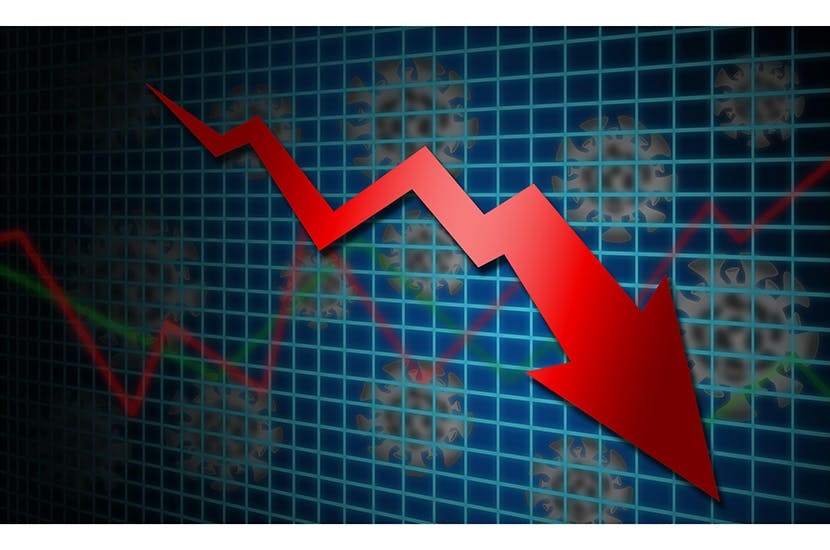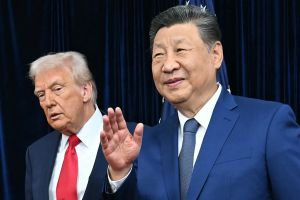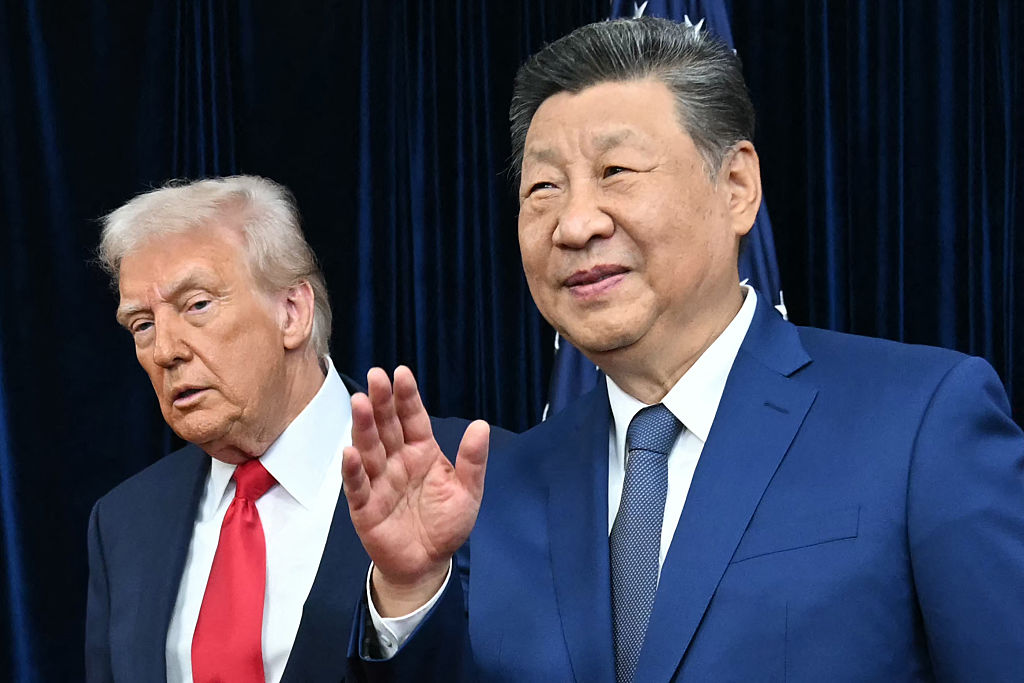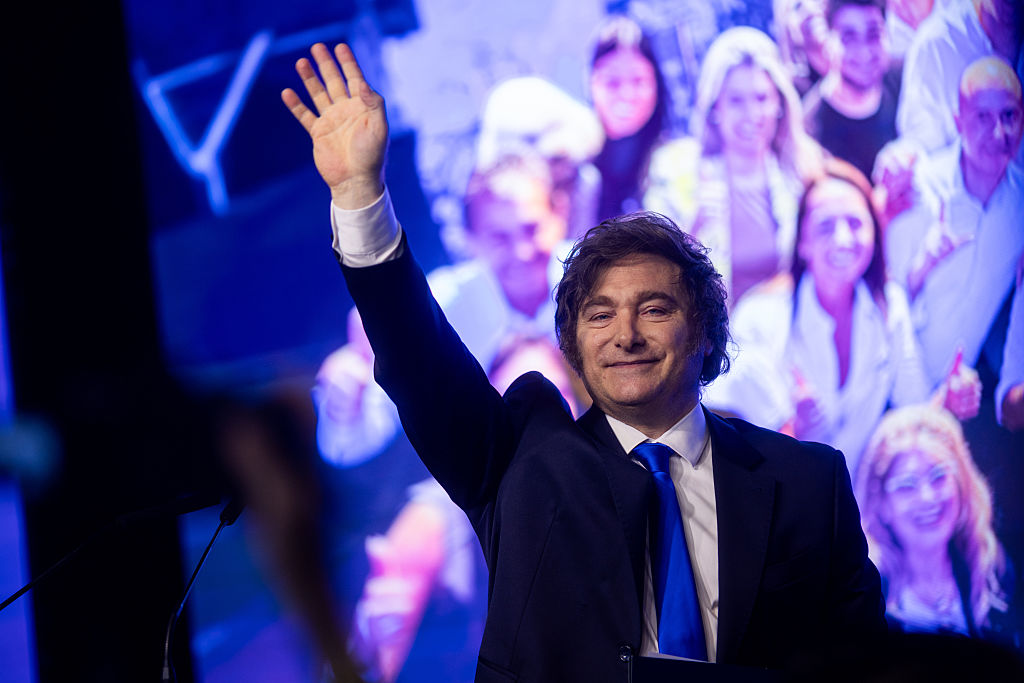Are you ready to relive 2020? That’s what Adam Tooze is offering as he tells the story of COVID-19 through the spectacular and terrifying economic consequences created by the global health crisis. For many, the answer will be a simple no. But for others looking to make sense of an utterly surreal year, Shutdown might seem an obvious place to start.
Unfortunately, the book offers less analysis and more ranting than would normally be expected from an economic digest — especially one written about one of the most startling shocks to the economy the world has ever seen.
Some readers may like the rant. If you’re of the opinion that ‘narcissist-in-chief’ Donald Trump, the ‘flat Earth brigade’ Republican party and politicians obsessed with ‘Brexit psychodrama’ are the major culprits of the pandemic, Tooze’s narrative will be comforting, perhaps even therapeutic. But anyone looking for a more rounded take on the COVID blame game will find Shutdown sorely lacking in nuanced perspective. Tooze’s hatred of Brexit and Trump runs so deep that he not only dials down criticism of other major players, he often finds himself making excuses for highly questionable behavior at the height of the crisis.
The two biggest winners are the World Health Organization and China. The WHO gets the easiest ride. Its catastrophic failures at the height of the crisis — regurgitating China’s talking points when it was trying to cover up the virus, keeping Taiwan out of crucial pandemic planning, moving at a snail’s pace to declare a pandemic — are explained by Tooze either as issues of underfunding or Trump’s personal disdain; or they are not mentioned at all.
Tooze’s view of China is a bit more complex. He doesn’t shy away from his analysis that Asian countries, China included, were right to take fast action last winter. That opting for travel restrictions and crackdowns meaningfully curbed the spread of the virus and led to faster economic rebound and stabilization later on: ‘Beijing grasped that. The West did not.’ Yet he is no zealot for mandatory lockdowns, which is why he chose ‘shutdown’ for the book’s title, not ‘lockdown’, to ‘hold open the question’ of how the world’s economic standstill came to be. While he praises fast, sometimes aggressive action from countries such as China, he provides counterpoint evidence which refutes a one-lockdown-style-fits-all approach:
‘For rich countries, self-activated social distancing far outweighed government orders. Of the 19 percent reduction in mobility that occurred in the 90 days after the first recorded infection, only just over a third could be explained by relative lockdown stringency. The rest was due to voluntary distancing.’
Tooze also highlights some of the more brutal tactics used by China to tackle COVID early on. In an effort to find COVID-positive patients and quarantine them, authorities in Hangzhou, in the eastern province of Zhejiang, ‘banned pharmacies from selling painkillers’, forcing people to present themselves to the state to access treatment. In another book, the plain stating of the facts would be more than enough to paint a damning picture of a country and its actions. But Tooze’s constant and extreme editorializing about other countries’ actions — particularly the United States and the UK — leaves the impression that he is giving China an easier time than its western counterparts.
If Shutdown has a contribution to make, it’s the number-crunching it provides. Anyone following the news cycle last year will be familiar with some of the big economic headlines. COVID resulted in the fastest GDP contraction on record, the biggest economic recession in 300 years. But even those who followed the crisis closely will discover plenty of interesting facts and statistics.
Tooze humanizes the impact of the economic freefall. The GDP collapse that was happening across the world wasn’t just a matter for government spreadsheets and bank balances; it translated into very real consequences for people’s livelihoods and opportunities. It is estimated that 81 percent of the world’s workforce were under some form of COVID restriction by mid-April last year and 1.5 billion students were ‘furloughed from classroom education’ only weeks after the UK entered its first lockdown. In the late months of 2019, for the first time outside a recession, there were more women in paid employment in the United States than men. ‘A year later, 2020 was the first recession in which women’s job losses and unemployment outnumbered men’s.’
Tooze’s meticulous outlining of monetary policy decisions taken by the Federal Reserve and other central banks at different phases of the crisis is bound to become a useful resource for economics wonks. And his criticisms of their independence — the cosy relationships that still exist between politicians and central bankers, the ‘lack of anti-systematic challenge’ in setting monetary policy — challenge the consensus.
But here too his conclusions are tainted by a political campaign, this time an aggressive critique of neoliberalism, which throughout the book is cited as a major cause of our pandemic woes. These criticisms are, ironically, littered around countless examples of the painful economic breakdown that occurs when the defining characteristics of neoliberalism — free trade and globalization — are temporarily suspended.
The best explanation for this somewhat disjointed narrative is that Tooze originally had a very different plan in his head when he set out to write Shutdown. He had envisaged a definitive book on energy policy, and then the pandemic hit. Like those of many of us, his plans were derailed and he switched course. This explains his constant references to the Green New Deal, and the many failed attempts to craft comparisons between Covid and progressive green policy.
I can’t help feeling Tooze should have pressed on with the book he wanted to write. From what he hints in Shutdown, it would have been chock-full of bold critiques and radical calls to action. It might have been just as contentious but more focused — and easier to recommend.
This article was originally published in The Spectator’s UK magazine. Subscribe to the World edition here.

























